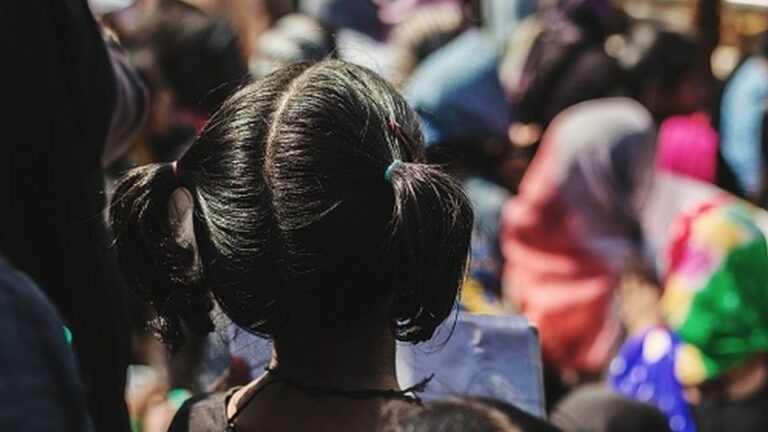
Six minor girls in central India were stripped and paraded naked as part of a village ritual to summon rains.
The incident took place in a drought-parched village in the Bundelkhand region of Madhya Pradesh state.
Videos that went viral on social media reportedly showed young girls walking naked with a wooden shaft on their shoulders which had a frog tied to it.
Locals believe the ritual will appease the rain god and bring rainfall to the region.
India’s National Commission for Protection of Child Rights has sought a report from the administration of Damoh district, where the village is located.
The Madhya Pradesh police said they had not received any formal complaint against the event, but added that they had opened an investigation.
“Action will be taken if we find the girls were forced to walk naked,” Damoh superintendent of police DR Teniwar told news agency Press Trust of India.
The video shows the girls, some of them reported to be as young as five, walking together in a procession, followed by a group of women singing hymns.
The procession stopped at every house in the village and the children collected foodgrains, which were later donated to the community kitchen of a local temple.
“We believe that this will bring rains,” PTI quoted a women in the procession as saying.
Damoh district collector S Krishna Chaitanya said the girls’ parents had consented to the ritual and had even participated in it.
“In such cases, the administration can only make the villagers aware about the futility of such superstition and make them understand that such practices don’t yield desired results,” he added.
Indian agriculture largely depends on monsoon rains and in many regions, there are rituals devoted to rain gods depending upon local customs and traditions.
Some communities hold yagnas (Hindu fire rituals), others marry frogs or donkeys or take out processions singing songs in praise of the rain gods.
Cynics say the rituals merely distract ordinary people from hardship, but cultural experts say the practices are a measure of desperation in those who believe there is nowhere else to turn for help.
(BBC)






